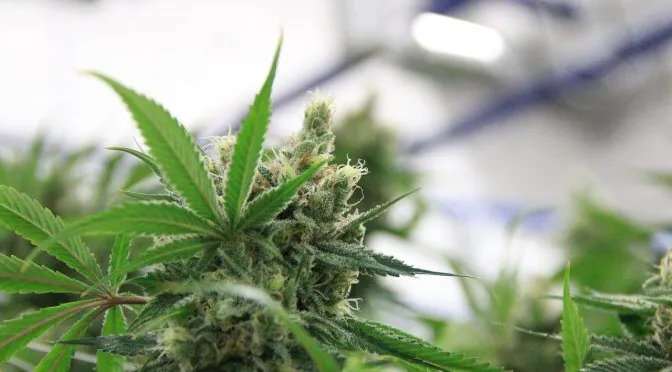The cannabis industry had a challenging time in 2019, and while things may begin to settle in 2020, companies will still need to grow and adapt in order to survive in a market that’s no longer running on hype and optimism.
The legalization of marijuana in Canada and several US states has brought a wealth of opportunities to the industry. It has seen numerous new businesses spring up, as well as existing businesses converting from illegal operations to legitimate ones, with investors eager to get in on the industry at the ground floor. However, the initial bubble has burst, and marijuana companies now face a more moderate market.
Setbacks in the North American cannabis industry
The six largest public companies in the industry lost a total of $25 billion last year, and the Marijuana Index (which follows the top 45 North American cannabis stocks) fell over 60% after the start of April. Businesses in Canada and the US are running low on money, with Canadian companies having about 6 months of cash on hand and US companies operating on about a year’s worth. While Canadian companies have less cash, those in the US face greater risk, as the lack of legalization under federal law means that US cannabis growers cannot file for bankruptcy.
Due to this upheaval and uncertainty, there have been significant layoffs in the cannabis industry in recent weeks, and they’re likely to continue through 2020. In early February, Aurora Cannabis announced that it would be cutting 500 jobs and its CEO was leaving. Other companies have also been making cuts, including Tilray, Sundial Growers, and Zenabis Global, with several organizations losing members of their leadership teams. In California, 8,600 legal cannabis jobs became illegal or disappeared altogether last year. As the market continues to adjust and cannabis companies adapt, there will be more cuts and leadership changes over the course of the year.
What caused the industry downturn in 2019?
All of this may sound dire, but it doesn’t mean that the cannabis industry is failing – it’s simply finding its equilibrium. There was a big rush to get in on this market initially, from both entrepreneurs and investors. Numerous existing marijuana suppliers were also making the change from illegal operations to legal ones, a process which had its own hurdles.
The new market has many regulations that need to be followed, and the laws are still evolving as Canada and parts of the US broaden their scope and introduce a wider array of products. Many existing companies have had a difficult time adjusting to meet these regulations, causing temporary or permanent closures. Larger companies have been better able to meet requirements, as they can afford the costs involved in becoming compliant. Meanwhile, these companies still need to compete with the illegal market, which does not need to meet the same standards. According to Statistics Canada, about 75% of Canadian users still go to the black market for marijuana.
Suggested reading: Top 10 CBD Oil Companies in the World
Industry experts see this downturn as little more than a speedbump, and while the market may continue to contract for the time being, it will recover. Indeed, many people have been expecting these issues. While some investors are jumping ship due to the cannabis industry’s 2019 performance, others see this as a prime time to enter the market. The excitement has died down, and businesses and investors are now taking a more level-headed view of things, prioritizing solid business sense, good products, and profitability.
What can we expect from 2020?
The US and Canada are the fastest growing countries in the global legal cannabis market, together accounting for the vast majority of the industry in 2018 and both expected to continue growing over the next several years. The global market is predicted to see incremental growth of over $33 billion between 2019 and 2023, and North America will be responsible for much of it.
Canada
In Canada, the legal cannabis industry was largely restricted to cannabis plants, flowers, and oils. However, as of the end of last year, businesses are now able to sell a much wider range of products, including beverages, edibles, vapes, and topicals. This opens up a lot more opportunities for sales and for product differentiation in a market that had a rough 2019. Beverage giants such as Constellation Brands (parent company of Corona), AB InBev, and Molson Coors Canada are already partnering with Canadian cannabis producers to bring new drinks to the market.
The United States
In the US, things are more complicated, as each state has its own laws and the federal government still considers cannabis illegal. The MORE Act and the SAFE Act aim to decriminalize marijuana and provide companies in the industry better access to financial services. They are both progressing through the House and Senate, but may have difficulty passing the Senate in the current political environment.
In the meantime, US states all have their own regulations. Marijuana is legal for recreational use in 11 states, and for medial use in 33 states. New York and New Jersey are both working towards legalization for recreational use in 2020. With hemp and its derivatives being removed from schedule I last year, researchers are able to conduct studies on hemp-derived CBD and its potential medical uses, which can help open the door to more products and provide a stronger argument for country-wide legalization.
Suggested reading: Legal Cannabis Market in 2019: Medical Cannabis Leading the Charge
Looking forward
Cannabis businesses still have challenges ahead of them in 2020, but the market is beginning to settle and new opportunities are opening up. Demand for marijuana remains high, and with Canada allowing an increasing variety of products to be sold and US states continuing to legalize recreational use, companies will find their footing and become more competitive. For more insights into the drivers, challenges, regulations, and key players in the global legal cannabis industry, check out Technavio’s in-depth market research report.



